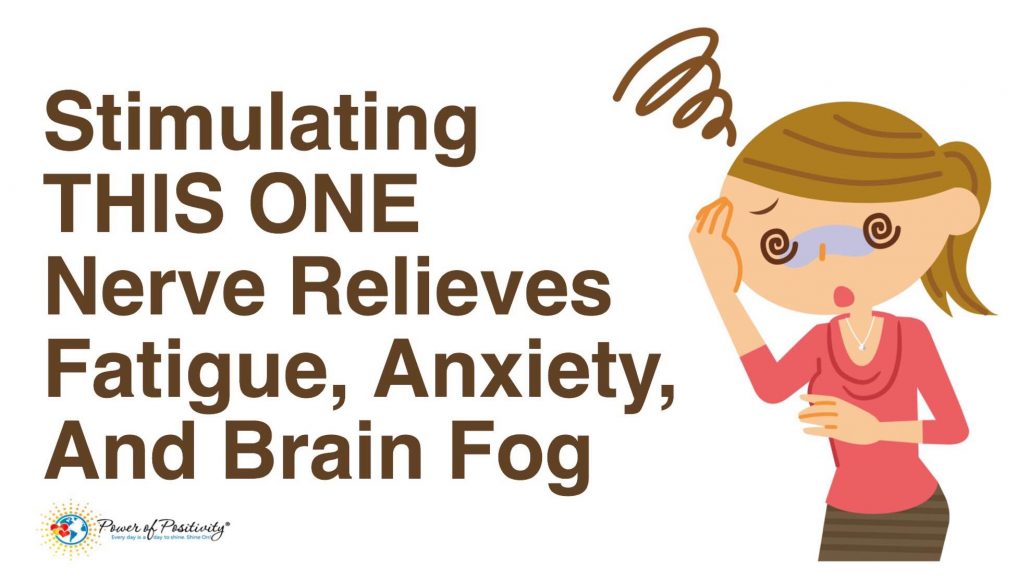
Image credit: https://www.powerofpositivity.com
I have been involved in health care since 1986 (that’s over 30 years) I have been involved in alternative medicine for nearly nine years.
I discovered some interesting facts today that relate to the health benefits of practices common to Buddhism. It relates to how common practice can affect the vagus nerve.
Every organ in your body is connected to the vagus nerve, so there’s little wonder that stimulating your vagus nerve helps relieve fatigue, anxiety, brain fog and more. The vagus nerve is important to your sense of intuition, or your ‘gut sense’ which can help you to pay attention to tiny but important details that help you make good decisions.
Vagus means ‘wandering’ and this nerve reaches all the way from your brain to your intestines. The vagus nerve also connects the brain to many other vital organs. The nerve sends information from the brain and receives information from the organs, which then gets sent back to the brain in a feedback loop.
Think about your fight or flight response for a moment. Your sympathetic nervous system is responsible for getting you ready to face danger. Once the danger has subsided, your parasympathetic nervous system resumes normal, relaxed bodily functioning.
By stimulating the vagus nerve, we are sending a message to our body that we are ready to relax and we want our organs to go into a relaxed state as well. Learning to stimulate your vagus nerve is another tool in your fight against stress and anxiety.
High vagal tone improves the function of many body systems, causing better blood sugar regulation, reduced risk of stroke and cardiovascular disease, lower blood pressure, improved digestion via better production of stomach basic and digestive enzymes, and reduced migraines. Higher vagal tone is also associated with better mood, less anxiety and more stress resilience. One of the most interesting roles of the vagus nerve is that it essentially reads the gut microbiome and initiates a response to modulate inflammation based on whether or not it detects pathogenic versus non-pathogenic organisms. In this way, the gut microbiome can have an affect on your mood, stress levels and overall inflammation.
Low vagal tone is associated with cardiovascular conditions and strokes, depression, diabetes, chronic fatigue syndrome, cognitive impairment, and much higher rates of inflammatory conditions. Inflammatory conditions include all autoimmune diseases (rheumatoid arthritis, inflammatory bowel disease, endometriosis, autoimmune thyroid conditions, lupus and more).
How do we increase vagal tone?
Some research shows that vagal tone can be increased with certain practices. Vagal tone was increased through a device that stimulated the vagus nerve. The good news is that you have access to this on your own, but it does require regular practice. To some degree, you are genetically predisposed to varying levels of vagal tone, but this still doesn’t mean that you can’t change it.
Here are some ways to tone the vagus nerve:
Meditation
Researchers believe that there is a connection between mood disorders like anxiety and depression and problems in the vagus nerve function.
Stimulating the vagus nerve is one way that we can teach our bodies to turn off arousing emotional states, such as anxiety. Researchers found that a specific type of meditation, called the ‘Loving Kindness Meditation’ helped reduce heart rate variability. Specifically achieving a positive emotion and a positive social connection to others in combination with meditation changed the activity of the vagus nerve.
Another article cites meditation, especially loving kindness meditation, which promotes feelings of goodwill towards yourself and others. A 2010 study by Barbara Fredrickson and Bethany Kik found that increasing positive emotions led to increased social closeness, and an improvement in vagal tone.
Chanting
Om. That single syllable, often chanted in the key of somewhere between B, C and C# on the musical scale creates an internal vibration in our throat that sends smaller vibrations to the lungs and other organs. All chanting can produce similar vibrations. As can talking, like in instruction or teaching.
Fasting
The vagus nerve is responsible for digestion when your brain says that you are in a safe environment. Otherwise, digestion is shut down when the body is dealing with stress. By fasting, an empty stomach sends signals back to the brain that digestion is unnecessary so energy resources can be used for relaxation instead.
Breathing Techniques
Deep breathing is always relaxing to your body, but you can use other breathing techniques to stimulate your vagus nerve. If you are interested in ways to relieve anxiety, you may have already read our article called This Ancient Breathing Technique Can Help Relieve Anxiety. Alternate nostril breathing or yogic breathing is a great way to stimulate the vagus nerve.
Another breathing technique that you may never have tried is inhaling deeply and then closing your airway while pushing your breath against the inside of your chest and bearing down with your abdominal muscles (like you are trying to pass gas). This method of applying internal pressure from the lungs out to the surrounding organs stimulates the vagus nerve as it connects your heart, spleen, lungs, stomach, and small intestines.
Generally
The implications of such simple and basic practices on your overall health, and in particular on inflammation are far-reaching. We’ve known for years that breathing exercises and meditation are helpful for our health, but it is so fascinating to learn the mechanism by which they work.
I hope this short article has inspired you to begin or continue Buddhist practice, and also to look for other means to manage the body’s inflammatory response.
References:
Forsythe P, Bienenstock J, Kunze WA.Vagal pathways for microbiome-brain-gut axis communication. Adv Exp Med Biol. 2014;817:115-33.
Kok, B, Fredrickson, B, Coffey, K, et al. How Positive Emotions Build Physical Health: Perceived Positive Social Connections Account for the Upward Spiral Between Positive Emotions and Vagal Tone. Psychological Science 2013 24: 1123
Sources: darouwellness.com ; powerofpositivity.com ; realfarmacy.com/stimulate-vagus-nerve/


